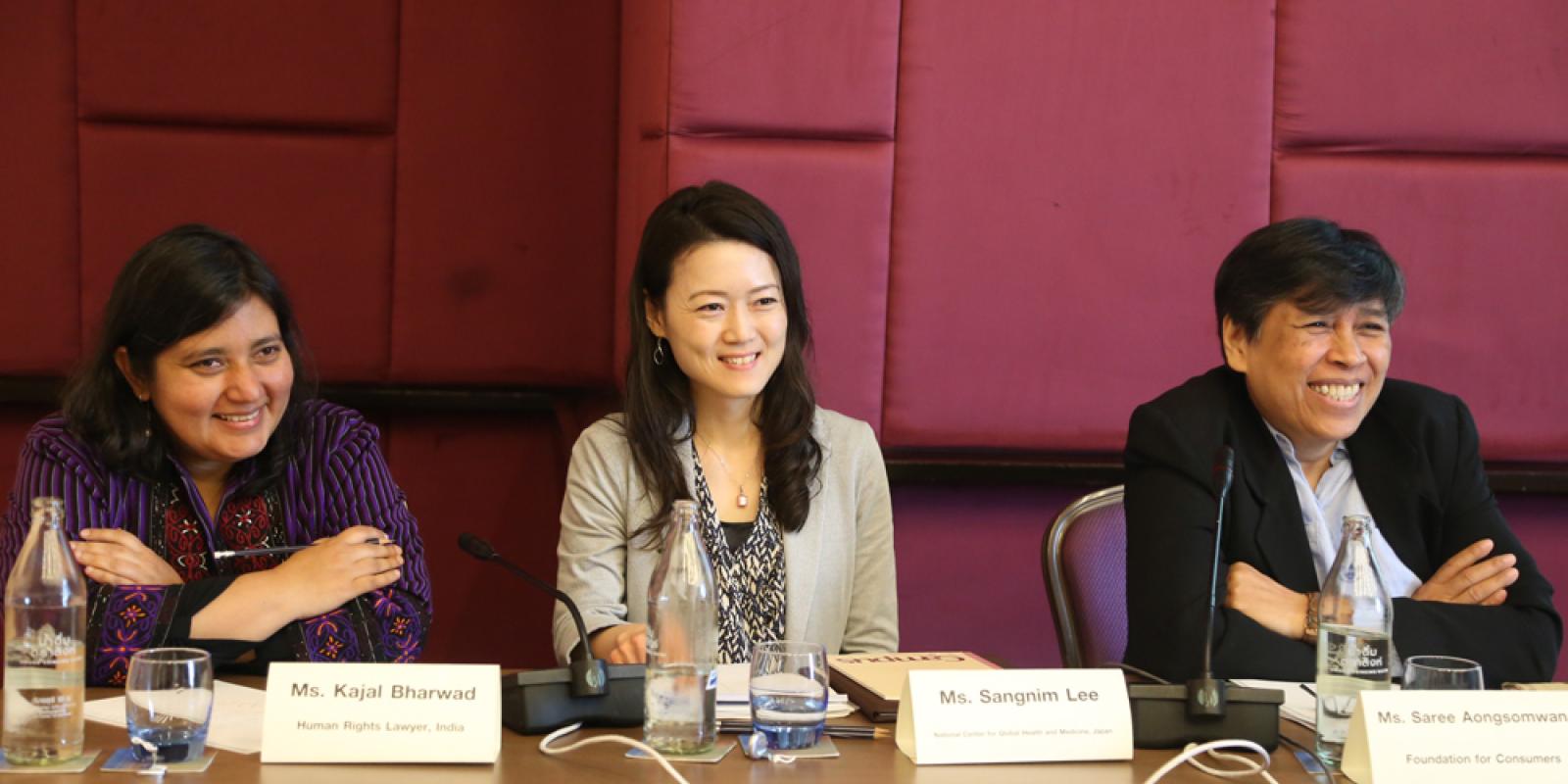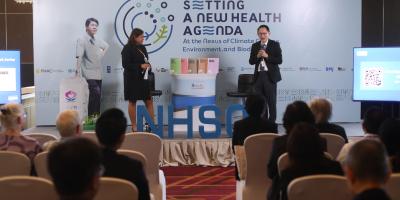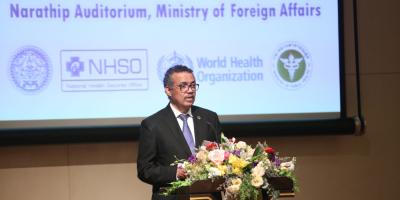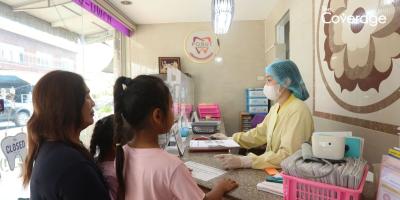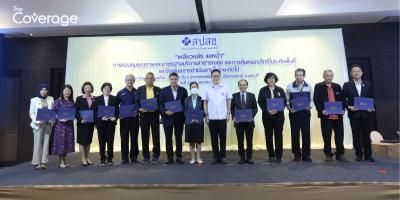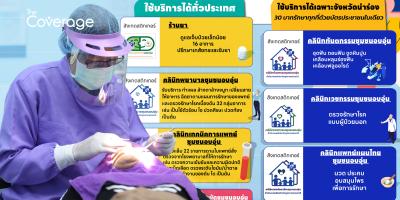Universal Healthcare Coverage (UHC) has been challenged by political climate under Thai junta government.
In the post-2014 coup, the scheme and its operator National Health Security Office (NHSO) has regularly been attacked by anti-UHC groups and military government whose leader, Prime Minister Prayut Chan-o-cha, accused UHC for causing financial burden to the government. He also mulled that the UHC should be provided to only poor people.
In a meeting “In Memory of Dr Sanguan Nittayaramphong: Patient Empowerment & People Engagement for Sustainable UHC” on Tue (30 Jan), health groups who played roles in pushing UHC to recognition raised concerns over the future of UHC and its challenge under the military’s special power.
The event was organized by the sideline of Prince Mahidol Award Conference 2018, at Convention Center of Centara Grand Hotel, in memory of Dr Sanguan who initiated UHC by engaging patients and civil society groups in designation of the scheme.
“Prior the launch of UHC, many people shared similar despairs, with their inability to access healthcare. Many patients were left in bankruptcy or became poor because they could not afford healthcare fees,” said Sangsiri Teemankha from Aids Access Foundation.
”Some patients must ask for doctors’ patronization to cure them. It was no differ from begging.”
But such scenes would less likely to happen after the introduction of UHC in 2002. The scheme has provided healthcare access to 48 million Thais and reduced catastrophe health expenditure by four times since its introduction.
Based on capitation payment, Thai governments have been able to afford saving-cost healthcare for majority population.
Particularly for HIV and Aids patients, said Aree Kumpitak from Network of People living with HIV, they were able to survive when antiretroviral (ARV) drugs had been included in UHC’s benefits since 2005.
Funded by NHSO, HIV and Aids civil society groups gets support in building capacity for patients through trainings and group organization, which empowers their health knowledge and encourages them to look after each other and survive the diseases.
Patients and civil society has a sense of ownership for the UHC. Guaranteed by National Health Security Act 2002, their representatives can participate in NHSO board to monitor and collaborate with multi-stakeholders to develop UHC’s benefits.
However, UHC has faced critics for its tripling budgets in over a decade---from 56 billion baht in 2003 to 166 billion baht in 2017. It’s also faced challenges on how to improve quality of healthcare and reduce overload of patients in hospitals.
Intense debates over efficiency and finance of UHC led to the military government’s order to amend National Health Security Act 2002 last year. The amendment process is ongoing. Public Health Minister Piyasakol Sakolsatayadorn has assured that the bill amendment is for overall improvement of UHC operation.
But civil society groups have raised suspicions that the bill would reduce bargain power of people’s representatives in NHSO board, by increasing representatives of health providers and government official. The bill also proposes to shift budget allocation for drug procurement and health personnel salaries in capitation payment to health providers instead, which raised concerns that the money would go to serve health providers rather than spending for improving benefits of patients.
“Right now, our government want to see this scheme for the poor, nor as the rights for everyone. We must campaign healthcare as a fundamental of human rights,” said Saree Aongsomwang, Secretary-General of Foundation for Consumers, during the meeting. “The perspective of ‘healthcare for all’ is not yet to existed.”
In the eyes of foreign health-related workers, UHC has inspired improvement of healthcare and drug access across the globe.
Kajal Bharwad from Human Rights Lawyer, India, said the battle of Thai civil groups to address affordable ARV for HIV and Aids patients in early stage of UHC had inspired Indian health groups to successfully challenge drug patents monopoly by pharmaceutical companies. Indian was dubbed as the country with the highest prices of medicine on earth in between 1950s and 1960s, as a result of patent system inherited through British colonization. But now the country is notable for producing affordable medicines and vaccines to the world population.
Sangnim Lee from Japan-based National Center for Global Health and Medicine, who has observed UHC in past years, said that the UHC “empowered people from inside and outside.” Its key to success is involving people in the system to create the society that no one is left behind.
- 1 view
